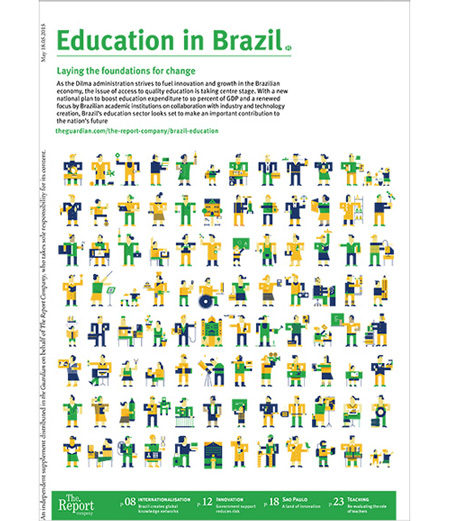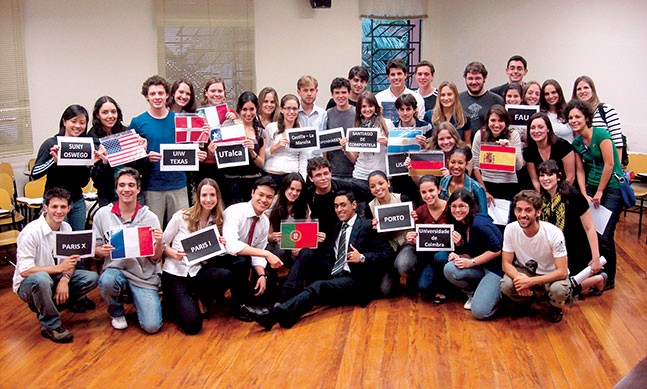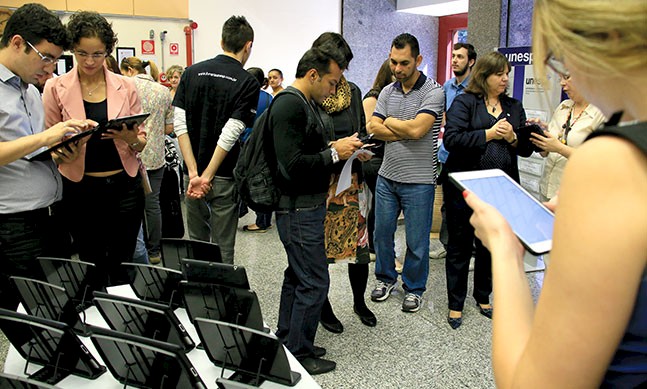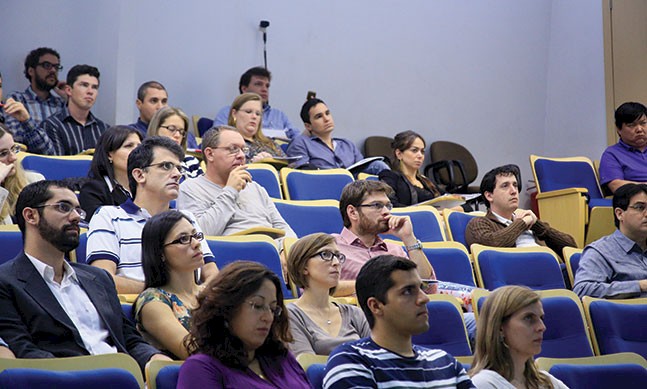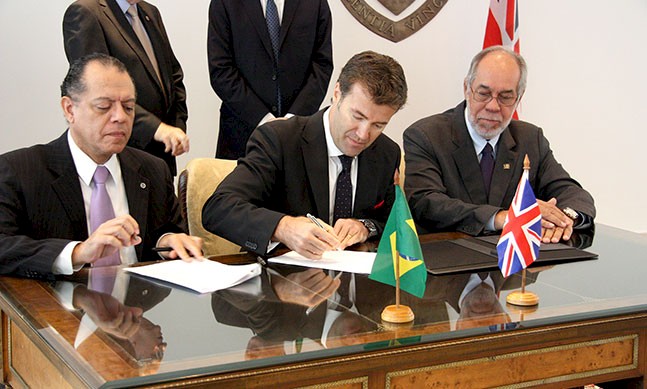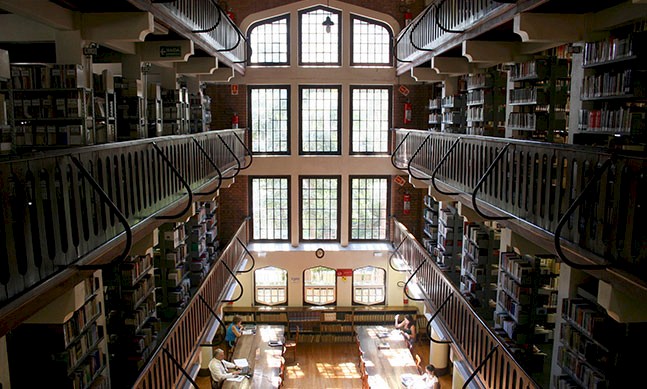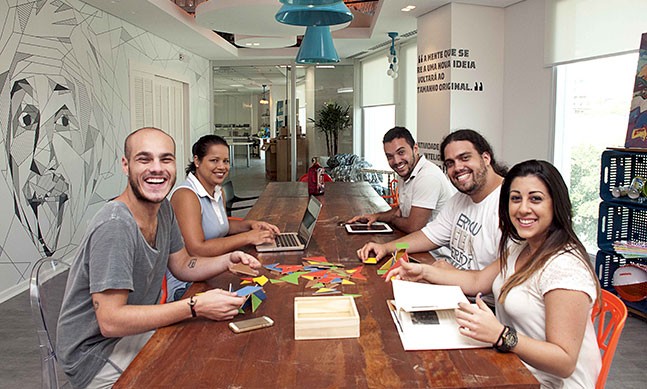
The Mackenzie Presbyterian University is one of the oldest educational institutions in Brazil. Founded by American missionaries in 1870, it has become a reference not only for educational excellence but for religious tolerance and social inclusion, with an extensive scholarship programme accounting for a varied demographic on campus. Today, the university hosts 40,000 students across four sites in Brazil, and under the deanship of Professor Benedito Neto, himself a graduate from Paraiba, Berlin and Washington Universities, it is looking to further expand its influence and knowledge base overseas.
The Report Company: How would you appraise Brazil’s education system in 2014?
Dr. Benedito Neto: There is no doubt education needs to improve in Brazil at all levels. Today, the country has 2,416 higher education institutions, a very significant number, but only a few of these are truly concerned with quality. In many cases, higher education is simply a business. On the other side, the number of individuals between 17 and 24 years of age in higher education is still small and we are far from reaching the goals set in the National Education Plan. Education in Brazil needs more investment to address quality and to adapt to the socio-economic reality of this country.
TRC: After the popular protests in 2013, president Dilma promised that the royalties coming from pre-salt oil exploration would be allocated to education. With this investment, how can quality be improved along with the quantity?
BN: The government should be concerned with quality of course, since it is the government that establishes the regulatory framework, however, education is not solely its responsibility. The Mackenzie Presbyterian University, for instance, is a private concern, and if institutions like ours and others in the country are not concerned about education, we will not advance.
There are more private higher education institutions (73 percent of the total) than public, so it clearly does not depend solely on the government, but it is the government's job to establish the regulatory framework that demands quality for all institutions. This framework is established by the ministry of education, but these universities need to have quality ingrained in them. We have to recognise that the Brazilian government has been concerned with both quantity and quality – it created ProUni and FIES, which grant poor students access to private universities but the quality was addressed by the regulatory framework.
TRC: There has been a lot of consolidation in the sector. How do you see the results of that process and what is Mackenzie’s position within it?
BN: I am very concerned about these mergers, first and foremost because I believe ensuring quality is hard when very large economic groups are responsible for an enormous number of students. Secondly, I think responsibility for education cannot be in the hands of a small group of people and its management, in a continental country like Brazil, needs to be more socialised. At Mackenzie, however, we see this as an opportunity. The demand for our courses has been increasing year on year and in the first semester of 2014, 97.3 percent of our seats were taken, far higher than the average, so I am not speaking as a dean who is concerned with how this will affect my university, but as a citizen concerned with education in the country.
“The demand for our courses has been increasing year on year and in the first semester of 2014, 97.3 percent of our seats were taken, far higher than the average.”Tweet This
TRC: Mackenzie has a long history of social inclusion, but where do you want to position yourselves and how do you think the university is viewed from within?
BN: I believe students see this as a non-for-profit institution that is greatly concerned with excellence. I think they are also aware of the significant scholarship programme we have for poor students as part of both ProUni and FIES - ProUni takes 20 percent of our seats, and we have around 2,700 students through FIES (around 5 percent). But we also have our own scholarships for the students that do not fit FIES or ProUni profiles, making around 35 percent of all our seats available for scholarships, which is a lot.
TRC: Are you able to foster that inclusion outside of the lecture hall?
BN: Our experience has shown that students linked to social programmes are not necessarily any better or worse than others, and it is in both groups that we see that the quality of students leaving high school needs to improve. Maybe the high schools are not fulfilling the role we in higher education would like them to, but we have ProUni students that have stood out and are even participating in initiatives such as the Science Without Borders programme, which involves vigorous internal and external selection. We also have another interesting programme here for disadvantaged students training them in English for the TOEFL (Test of English as a Foreign Language).
TRC: Last year, Mackenzie was awarded the best non-public educational institution in the state of Sao Paulo for the second time. How did you arrive at this point?
BN: It's been 62 years of work since the university was inaugurated in 1952. Mackenzie started in 1870 as a little pre-school founded by American missionaries. In 1896, an engineering course was launched, considered the best in the country and by the 1920s, our diplomas were granted by the board of the New York State University and validated here. There is a great movement toward internationalisation today, for students to study in Brazil and abroad. We were doing that in the 19th century.
Our experience with New York State University allowed us to grow and consolidate our position. Throughout those years we perfected our teaching methods and our relationship within industry, pioneering supervised internships which Brazil only institutionalised in the mid-1970s.
TRC: Such internships are surely beneficial to all parties?
BN: Exactly, and over time we adapted our pedagogy to include scientific and technological development and we became synchronised with the job market and helped empower students. I believe these three pillars are the reason why we were considered the best non-public higher education institution in the state. Our students are the second most wanted by the market in Brazil, second only behind the University of Sao Paulo. The latest change in our syllabus is taking place now, and in the second semester of 2014, we will be implementing 42 new pedagogical projects. Our syllabuses will become more modern and current all at once – I don’t think any other university of our size could do that.
“There is a great movement toward internationalisation today, for students to study in Brazil and abroad. We were doing that in the 19th century.”Tweet This
TRC: Is Mackenzie aiming at partnerships with English or American institutions?
BN: We are very interested in closing partnerships with English and American institutions and we currently have agreements with around 80, mostly relating to ensuring that our students study at a foreign university for some time and vice versa. Some agreements include joint research projects, such as with the National University of Singapore (NUS), with whom we have been researching graphene. We are building an Advanced Research Centre on Nanotechnology and Nanomaterials thanks to the partnership and it is being financed with resources from Mackenzie and Fapesp.
The equipment, scholarships, mobility of professors and students are receiving R$10 million from Fapesp and Mackenzie is investing R$45 million of its own resources. This is unique for non-public universities and places us at the forefront of graphene research, which will revolutionise the fields of electronics, composite materials and energy. It is the most resistant material in the world. It’s flexible, very resistant and very conductive (100 times greater than copper), meaning it has great application in electronics, telecommunications.
NUS is the university producing the expertise in this area, and the University of Manchester proved the existence of the material, earning two of their researchers the Nobel Prize. The University of Manchester has a relationship with NUS and we have students and professors being trained in Singapore and it all shows how valuable we consider international partnerships for any Brazilian university. Such partnerships can gather different expertise from both sides; we will develop things NUS will not develop and vice versa, it's a matter of joining competencies to gain better results.
TRC: What is your vision for Mackenzie?
BN: In continuing our search for academic excellence, we want to educate not only citizens (above all), but also researchers, educators, and competent professionals in any area. We want to further what our pioneers built and attain new levels of excellence and for that to be recognised by the society, both in Brazil and abroad. I believe this is the path we are treading.
I do not think Brazil can be called "the country of the future" anymore. This is the future. Brazil has many natural resources and a great cultural heritage, but I also believe there is great potential in science and technology and that this will be recognised in the future. It is the job of the agencies that support science and technology to establish strategic areas to invest in. In regards to microelectronics, for example, we have already lost the race, we cannot advance any more in that field. So we need to establish which areas to invest in and become recognised for and competitive in them, but high-level education is a fundamental starting point.
“I do not think Brazil can be called ‘the country of the future’ anymore. This is the future.”Tweet This


